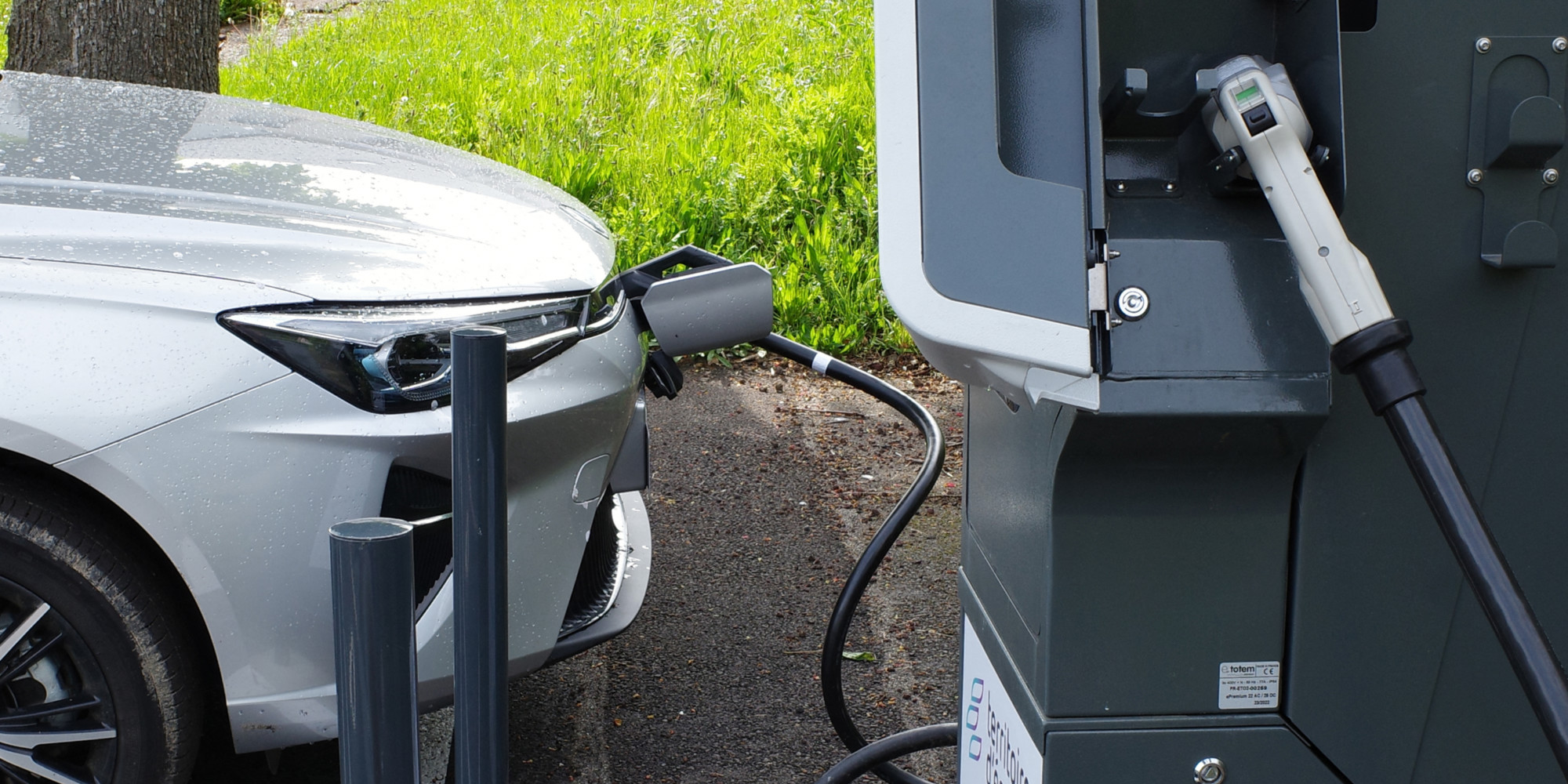Romain Rouillard / Photo credit: MATHIEU THOMASSET / HANS LUCAS / HANS LUCAS VIA AFP 19:45 pm, September 27, 2023
During his ecological planning speech last Monday, Emmanuel Macron reaffirmed his desire to give pride of place to electric cars through the opening of social leasing and a relocation of the production of clean vehicles. On the business side, if the ambition is shared, many obstacles arise.Between his interview on the news of 20H of TF1 and France 2 Sunday evening, and his speech of ecological planning, scheduled for the next day, Emmanuel Macron has delivered announcements all over the place in the space of 24 hours. Especially on the automotive side. The head of state assured that the France would produce, by the end of his mandate, "at least one million electric cars" and that a social leasing - a lease with option to purchase at only 100 euros per month for an electric vehicle - would be set up from November.
The president therefore wants to give pride of place to the electric car, increasingly popular with individuals and whose sales continue to break records in France and Europe. But on the business side, the transition to all-electric faces a number of difficulties. Last April, reports Le Monde, the NGO Transport & Environment indicated that "66% of companies, 64% of local authorities and 87% of administrations have not reached the legal quotas for greening their fleets". Figures based on the whole of 2022.
Autonomy and infrastructure
Abandoning thermal in the business world is therefore not easy, especially with regard to the use of professional vehicles, often much more sustained than those of individuals. "The French travel, on average, 10,000 km each year while on the side of the rental companies, we are on contracts at 30,000 km per year," says Régis Masera, consulting director of the rental company Arval (BNP Paribas group) and the Arval Mobility Observatory.
>>
READ ALSO – Ecological bonus: what we know about the measure that will come into force next year
Very quickly, the question of the autonomy of these vehicles resurfaced, as did that of the infrastructures that accompanied them. This is also one of the main obstacles to the purchase of an electric car, whose autonomy announced by the manufacturer is very often overestimated. "Let's take an employee who needs to charge his vehicle during a trip. Sometimes it will only cross slow charging stations and it is difficult to block a technician for two hours in the middle of his day, "says Régis Masera.
For a company, greening the vehicle fleet can also generate new, sometimes prohibitive, costs. "For example, you have to electrify the company's car parks and it's not the same if you own or rent the premises. We must also ask ourselves if ships can support chargers? If this is not the case, it can lead to heavy investments," the expert notes.
Additional costs that can also be mobilized on the installation of charging stations that will be used by home employees. "But it's not the same if you live in a pavilion or an apartment," warns Regis Masera. "Many car parks are not yet equipped in collective housing," adds Arnaud Aymé, transport specialist at Sia Partners.
"Work of accompaniment and pedagogy"
This accentuates the reluctance of some employees to switch to a 100% electric car which, in their eyes, would present many more logistical constraints than advantages. Hence the importance of the "work of accompaniment and pedagogy" to be carried out within companies. "There are people who are in favor of it, who have a developed CSR fiber, but it is not the majority of people," concedes Regis Masera.
>>
READ ALSO – Will the hydrogen car replace the electric? Discover the answers of an automotive expert
Finally, the transition to all-electric, in companies, is accompanied by a major modification on commercial vehicles, borrowed by professionals required to transport bulky equipment. "To have as much autonomy as possible, you need big batteries. But who says bigger batteries, says heavier vehicle and less payloads. The lighter a vehicle is, the more equipment you can carry. With an electric vehicle, the charging volume is lower, because you have to fit the batteries," observes Régis Masera.
So many obstacles that stand in the way of the electrification of the car fleet in companies, despite a "very strong will", says Régis Masera. But the transition is underway, guarantees the expert who relies on the barometer of fleets and mobility 2023, developed by Arval. "When we ask a very wide range of companies, 8 out of 10 tell us that they have already introduced alternatives to thermal. Not necessarily in very large volumes, but they have all started their energy transition."

